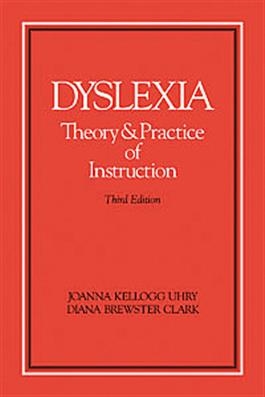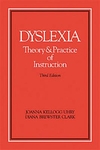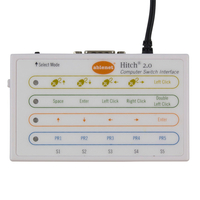Dyslexia Theory and Practice of Instruction Third Edition

Description
This book overviews dyslexia research literature and discusses the
most effective techniques for teaching children with dyslexia. With over
200 references, this up-to-date, research-based resource is a must-have
for teachers of students with dyslexia of all ages.
This essential book is divided into three parts:
- Part I
outlines the underlying psychological and cognitive processes that
support both beginning reading and mature, sjkilled reading. Historical
and current views of the nature of dyslexia are also discussed, as well
as issues of diagnosing dyslexia. - Part II
addresses general principles of instruction for students with dyslexia,
such as systematic, direct instruction, and assessment-based planning
for components of language arts programs (e.g., phonemic awareness,
phonics, fluency, vocabulary, comprehension, spelling, handwriting, and
written composition). - Part III describes
particular programs for students with reading difficulties, such as The
Lindamood LiPS Program, Reading Recovery, The Wilson Reading System, and
Project Read.
Recent trends in educating those with
dyslexia are also addressed, including inclusive classrooms, balanced
literacy, and the standards and accountability movement. It discusses
the need for stronger teacher preparation in reading and acknowledges
how invented spelling can ease the transition from phonemic processing
to written language as well.
This is an important book for
teachers, reading specialists, special educators, and dyslexia
specialists to have in their resource library. It provides a
comprehensive overview of dyslexia while also offering specific
strategies and techniques that will help your struggling readers.
To see more of this product's contents:
370 pages 6 x 9 softcover 2005
Dyslexia Theory and Practice of Instruction Third Edition











